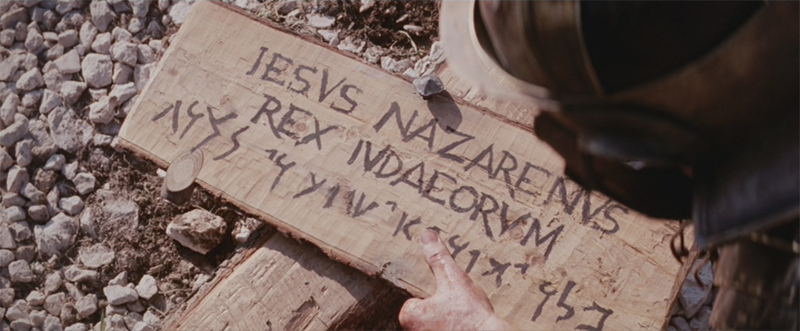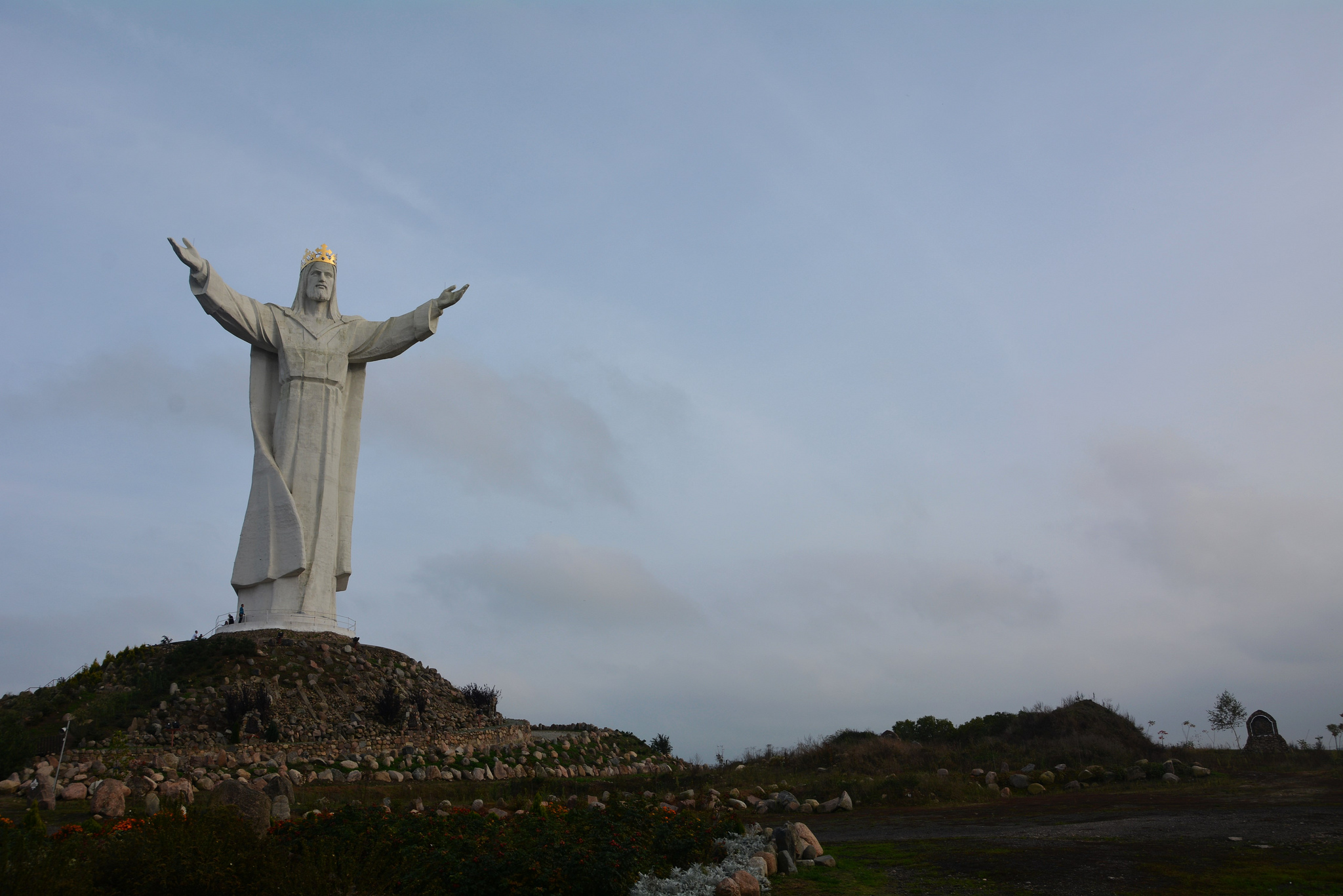 This Sunday, we celebrate the Solemnity of Jesus Christ, King of the Universe. This Sunday also marks the end of the liturgical year. In today’s Gospel (Luke 23:35-43), we read about the crucifixion of Jesus. Speaking of Jesus’ kingship, Luke here mentions the titulus (Latin for “title”, referring here to the the inscription above Jesus’ cross) that read, “This is the King of the Jews”.
This Sunday, we celebrate the Solemnity of Jesus Christ, King of the Universe. This Sunday also marks the end of the liturgical year. In today’s Gospel (Luke 23:35-43), we read about the crucifixion of Jesus. Speaking of Jesus’ kingship, Luke here mentions the titulus (Latin for “title”, referring here to the the inscription above Jesus’ cross) that read, “This is the King of the Jews”.
It was very common in the Roman practice of crucifixion in late antiquity to affix a titulus either to, or above the cross of the condemned. As criminals were usually crucified in public places (as was the case with Jesus of Nazareth), this practice enabled passerby to discern exactly what offense a condemned criminal had been found guilty of, which led to that person’s death sentence. These public executions fostered a great deterrent to those who would dare to challenge the might of the Empire.
Interestingly, as scholar Craig A. Evans points out, this inscription is in all likelihood the first thing that was ever actually written down about Jesus of Nazareth. And, although unintended by Jesus’ tormentors, it expresses a powerful truth about his identity.
Luke’s account of the death of Jesus is the only Passion Narrative taht mentions the so-called “good thief” who is promised “Paradise” by Jesus. Luke here shows the two possible responses to the crucifixion of Christ. On one hand, there is the response of the religious leaders of Jerusalem (and the Roman soldiers): “The rulers sneered at Jesus and said, ‘He saved others, let him save himself if he is the chosen one, the Christ of God.’ Even the soldiers jeered at him” (Luke 23:35-36). Jesus is crucified alongside two criminals (probably insurrectionists). One of the two “reviled” (literally, “was blaspheming”) Jesus, echoing the insults and abuses of the rulers.
On the other hand, the other criminal rebukes his companion (vv. 41-42), noting that Jesus is not only innocent (“this man has done nothing criminal”), but that he believes Jesus will somehow survive his ordeal – an incredible act of faith (“Jesus, remember me when you come into your kingdom”). As hearers of this Gospel, we are clearly encouraged to identify with this man, making the same request to our Lord.
Luke’s Gospel will go on to demonstrate that Jesus, although condemned by the Sanhedrin and Pilate, will indeed be vindicated – and that by a much higher authority: Almighty God. Jesus’ powerful Resurrection means that the inscription on his cross proved to be true, in a way his enemies never expected. Jesus is indeed the Messiah (the Christ), and the King of the Universe.


